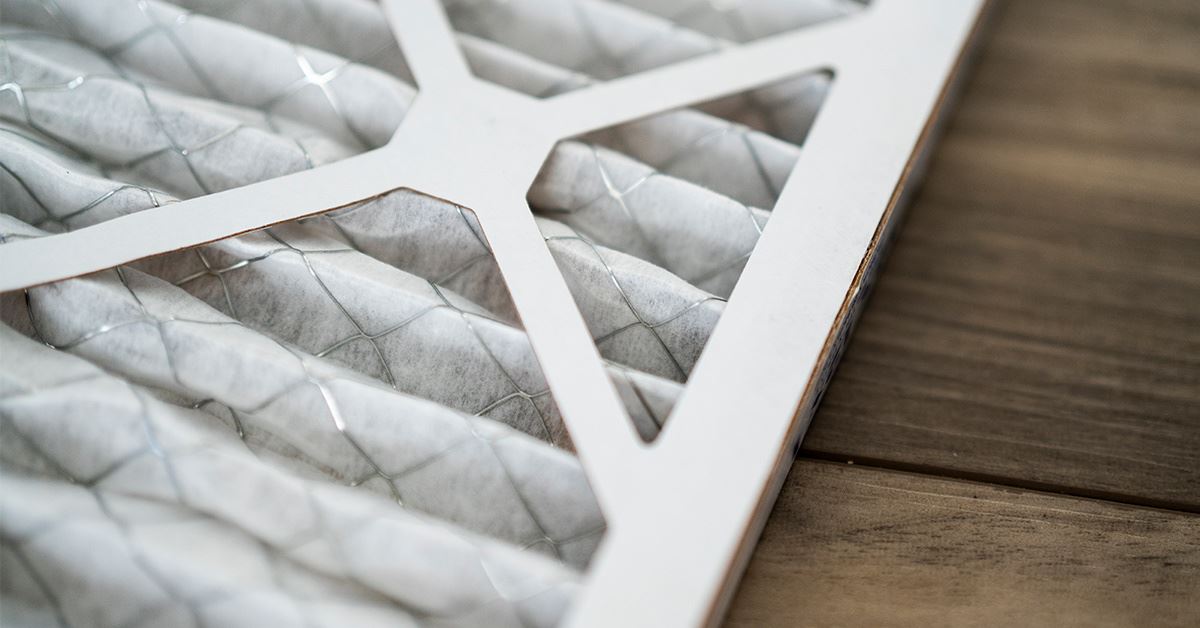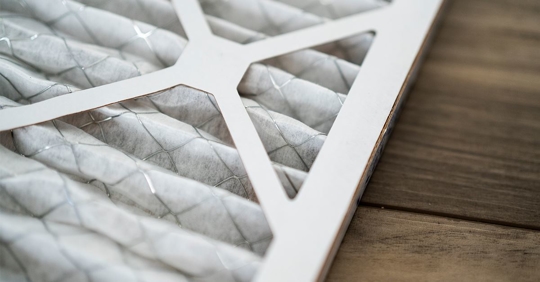
While looking into your Carolina home’s air quality, you have probably considered upgrading the filter in your heating ventilation and cooling (HVAC) system. But the specialized terms meant to clarify the quality of air filters can become confusing. What is the difference between HEPA and MERV filters? How do you know which to use? We’ll explain it all right here.
What Are MERV Filters?
MERV filters are those tested using the MERV (Minimum Efficiency Rating Value) scale. The American Society of Heating, Refrigeration, and Air-Conditioning Engineers (ASHRAE) developed the scale to measure the effectiveness of air filters. What are MERV ratings on filters? Here’s what you should know.
- How the filters are tested. Rated filters receive a 1-16 rating. The higher the number of an air filter’s MERV rating, the more effective the filter. To find this number, testers measure the number of particles before the filter as well as the number after the filter. The reduction of particles determines the air filter’s MERV rating.
- Gauge the effectiveness. In a standard HVAC system, you are likely to come across a MERV 8 filter. This is below the Environmental Protection Agency’s (EPA) recommendation of installing a MERV 13 or higher for increased air quality. While a MERV 8 can remove less than 20% of contaminants from 0.3-1.0 microns, a MERV 13 is rated to remove more than 75% of contaminants within the same size.
- Select a good fit. Make sure your MERV filter fits properly in your system. A filter that’s too large will end up crushed. One that’s too small will allow air to flow around it, reducing its effectiveness.
- Match with a compatible HVAC. An HVAC system that is not compatible may work harder to blow air through the fine mesh rather than slowing the airflow. This can result in both a broken filter and strain on the machine. It’s better to choose the highest-rated filter that works with your system. If you want to improve your air quality further, you can add a portable or whole-home air purifier into the mix.
Related Content: What Are the Different Types of Whole Home Air Purifiers?
Purify the Air with HEPA Filters
What are HEPA filters? Standing for High-Efficiency Particulate Air, HEPA filters are often used in hospitals—and recently in commercial businesses and residential homes—to clear the air of bacteria-sized contaminants.
- Improved efficiency. When compared to MERV, HEPA would be rated a 17 or higher—above the scale’s range. This is because HEPA-filtered air eliminates 99.97% of air pollutants 0.3-1.0 microns in size, clearing away bacteria and virus contaminants as well as larger dust and pet dander.
- Ensure your system is compatible. Not all HVACs can operate with a HEPA filter. The filters are much finer and have more layers than other filters. That makes it harder to push air through as well. Rather than pressing your luck that your system can run with a HEPA filter without straining, fit your system with the highest-rated, compatible filter and enhance your setup with a portable air purifier for better air quality.
- Other ways to improve air quality. There are other air quality options for those with systems not compatible with HEPA or who find they don’t run their HVAC often enough to improve their air quality as they want to. Most homeowners only run their HVAC 20-30% of the hours within a year. That leaves over half the time unfiltered. A good solution is to include a portable HEPA air purifier.
When Should You Replace Your HEPA Filter?
How long do HEPA filters last? This will depend on the type of filter, the air pollution, and how often the system runs. Some filters are rated as permanent and last for up to 10 years. Others only last for a few months. To keep your air quality optimal, check your filter every 3-6 months for cleaning or replacement.
Improve Your Indoor Air Quality in Ocean Isle
Whether it’s for a family member with health challenges or your own peace of mind, our A+ Heating and Cooling air quality experts can help you optimize the purity of your air. Give us a call at (910) 600-6025 or schedule service online.
- Prev Post
- Next Post
